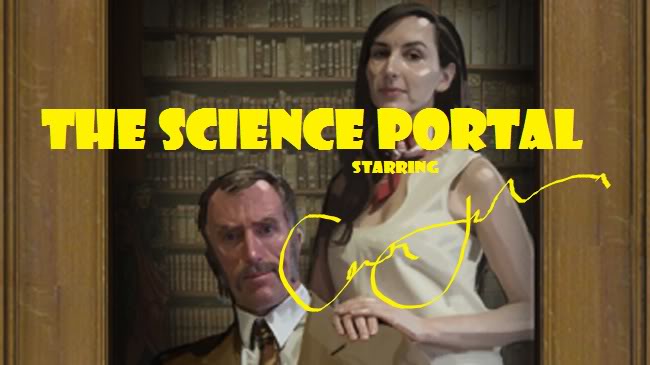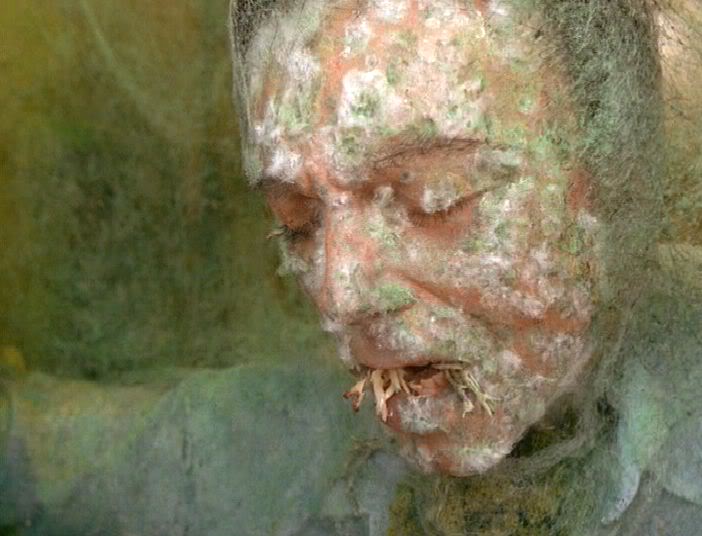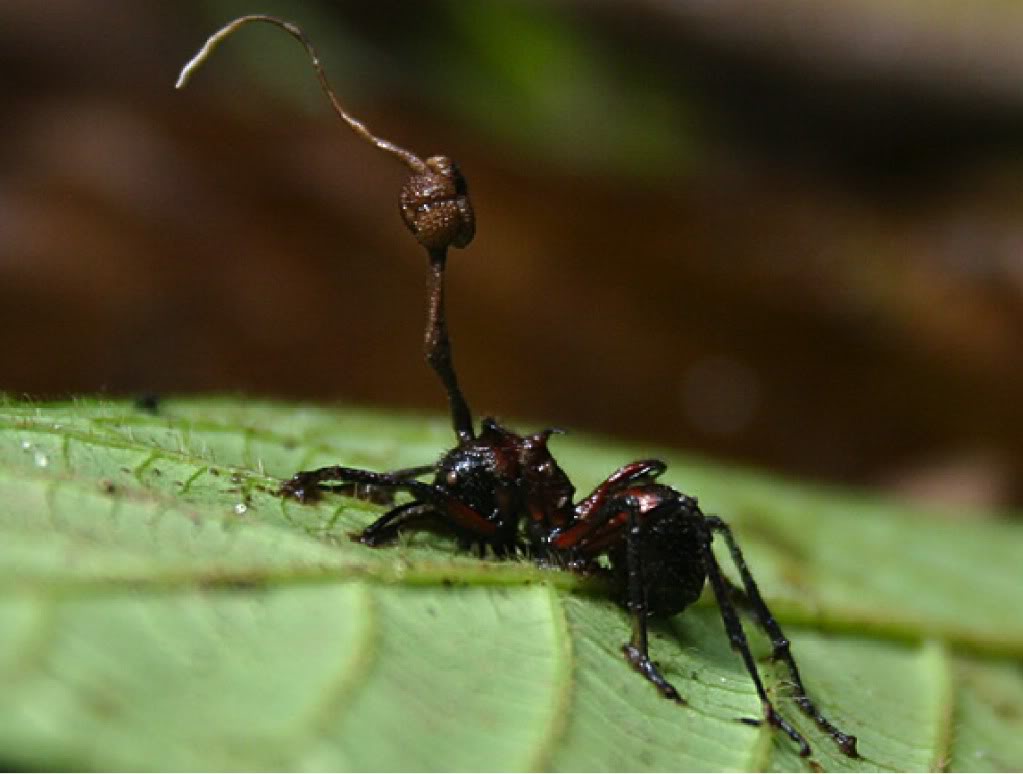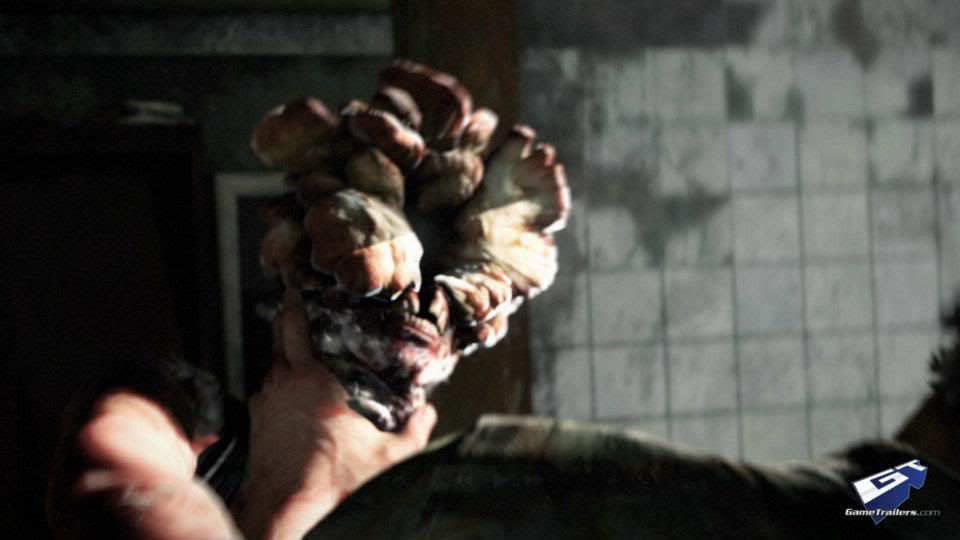
THE SCIENCE PORTAL STARRING CAVE JOHNSON* AND JACKSON W. RYAN
*Disclaimer: Cave Johnson will not be appearing in this week’s The Science Portal due to a near-fatal accident with a herd of jetpack giraffes.
Greetings friend, you may or may not know me as Jackson W. Ryan (community writer). I maintain a presence on the internet via Twitter and a personal blog, yet my Klout score would barely register a 2. I do not get paid to make product endorsements via the internet and thus, I have a day job. I am passionate about it. I work as a research scientist in a celebrated but small laboratory in South Australia investigating the endocrine system and its role in bone health. There’s something you guys should know from the outset: I am in no way affiliated with Aperture Science; I have never experimented with praying mantis DNA and when life gives me lemons, I usually just use those glistening oval fruits to make a cheesecake. In this column, I want to marry my two passions: writing about video games and science. Will it work? Probably not. Will you learn something? I am not committed to answering that with a yes, for it will end in a lawsuit. Do I want you to read it? Damn right I do, I want the best, and you are it! So who is ready to make some science (-related video game posts)? That’s right, I am!
The Amazing Zombie-Makin’ Fungi of The Last of Us
Confession: I hate mushrooms. My mother used to make this beef stroganoff concoction that made me think of her as one of those three witches from Disney’s Hercules. You know the ones? They share one eye? Well, my mum isn’t a Cyclops, but this beef stroganoff was terrible. I can’t fault the quality of the beef or the island of rice that she heaped onto my plate, those elements were tasty enough, however the one thing I did hate was the damn mushrooms. These mushrooms were strategically placed throughout the dish, and they were covered in the typical stroganoff sauce. They looked like little tiny atomic bomb clouds and they certainly tasted like nuclear fallout (which I presume tastes bad). As I progressed through my undergraduate science degree, I learnt of the finer points of mushrooms in Microbiology 101. Mushrooms are the fruiting bodies of fungi, eukaryotic organisms that differ in their chemical and physical composition to plants and animals and thus belong to a taxonomical Kingdom of their own.
My basic knowledge of fungi expanded in fourth year and the aptly-titled Microbiology 401. I dubbed this class “The Nightmare Class” because it dealt with the pathology of organisms that we cannot routinely see or hear. I became a germaphobe that year and to this day I open the toilet door with my elbows. Some of the scary fungi I ran into in these classes were Candida, responsible for vaginal and oral thrush and Amanita phalloides, the death cap, an incredibly poisonous mushroom that looks delicious (if you’re into that sort of thing). You can see where “The Nightmare Class” came from, right? My take home point: FUNGI WANT TO KILL YOU AND THEY DON’T CARE HOW YOU FEEL ABOUT THAT.

When I learnt that Naughty Dog’s upcoming action-adventure title The Last of Us would feature zombies I rolled my eyes and blew my fringe out of my face. I am cool like that. “Another zombie game… ungh” were the words that left my mouth. I was upset because I fell in love with Uncharted and Naughty Dog’s prowess at creating a Hollywood-type experience in an action game. Then I saw the first trailer and created a check list. The protagonists in this game were Nathan Drake (aged for difference) and Ellen Page. I like both of those people, so that was a tick. Then the zombies took centre stage and to my surprise, these weren’t your typical jaw-hanging-off-the-side-of-its-face, skeletal, rotting zombies. Not at all. These zombies had tumour-like masses on their foreheads. That was another tick. For good measure, they showed this tumour-like mass being blasted off the skull of a ‘zombie’ by Old Nathan Drake. Three ticks. Sold.
The kicker came when Naughty Dog explicitly stated that these creatures are the result of a fungal infection and the world has collapsed as a result. A fungal apocalypse. A fungalypse. “Oh great”, I thought, “more nightmare fuel”. What scared me more was, as I researched further, I found that this particular species of fungi exists IN THE REAL WORLD (where I live) and not just in the digital world (where I once was able to go to escape the horrors of the real world). My microbiology lecturer never told me about this and I thanked him for keeping these zombie fungi to himself in an email I titled: Thank you for keeping the zombie fungi to yourself.
Ophiocordyceps unilateralis (Cordyceps) is a fungus which is parasitic to the humble ant, a staple of the tropical rainforest that the fungus calls home. Unfortunately for the fungus, it can only survive by reaching a certain altitude, level of humidity, temperature and location, yet being a fungus it doesn’t have the necessary capability to pursue such goals. It doesn’t have legs, or wings (and thank evolution, amirite?) Spores, responsible for spreading the fungal seed, infiltrate the exoskeleton of the ant and take root within it gradually degrading the ant from inside out through specific enzymatic activity. In the meantime, the fungus also wants to promote reproduction and to do this it creates a zombie. Literally. It hijacks the ant’s brain, like a fungal Frank Fontaine and asks “Would you kindly?” and the ant, Jack, has no other option but to climb a plant stem and settle in and die. David Hughes, the preeminent researcher of these fungi, states “the term zombie ants underlines that, while the manipulated individual may look like an ant, it represents a fungal genome expressing fungal behaviour through the body of an ant.”

The most amazing thing about Cordyceps is that David Hughes and colleagues discovered the location at which the fungus directs the ant to die in is very specific. He has found that, more often than not, the ant will die about 25cm from the forest floor, on the underside of a leaf facing north-northwest and in a zone of humidity that hovers around 95%. Such precision is almost unheard of and truly is a wonder of evolution, highlighting the unique ability of the fungus to direct its zombified host at will to ensure its own survival. You would be hard-pressed to find an example of parasitism as terrifying as this.
What makes Cordyceps even scarier is that, as the ant is directed to its graveyard, it forces the creepy-crawly to latch on to the stem of a plant leaf with a vice-like grip. Importantly, the ant’s mandible would usually pierce the leaf and thus would make the ant prone to slipping off the leaf to the floor or being swept away in the rains, eventually killing both parasite and host. However, it seems as if the fungus has evolved a mechanism to first direct the ant to bite into the stem at just the right pressure and then prevent the ant from unlocking its mandible claw by dissolving the muscle that controls it. ARE YOU FREAKING KIDDING ME? I WILL NEVER SLEEP AGAIN.
The ant dies and the fungus spreads further throughout its body until it pierces the exoskeleton at the back of the ant’s skull and buds a long stalk that weaves its way through the air like a tentacle of the Kraken. Eventually, this bud creates a sac of spores, known as a fruiting body or sporocarp, that can than rupture and disperse spores back to the forest floor. If they infiltrate another ant, the process starts again.

At present, Naughty Dog has only shown us fleeting glimpses of their fungi-infected human beings in all their malicious, bloodthirsty glory. We see the head of one opened up like a ripe tomato at the hands of Old Man Drake, but the most recent E3 gameplay footage, shown at the end of Sony’s 2012 press conference, showed us the human side of the fungalypse – the relationship between the older gentleman and the young girl and the fact that there are other survivors too. We see the lush landscapes that Naughty Dog has created and the urban jungle, festooned with thick moss and trees. Is this environment a result of the apocalypse? Does the fungal infection spread more easily as a result of this environment? How did the fungus jump from insect-devourer to human-devourer and what changed?
I am incredibly interested in which direction the “zombies” are taken and the back story that The Last of Us involves itself with. Will these zombies, infected by a descendent or brother of Cordyceps, be out for blood? If so, I think that the true beauty of the fungus is lost in an effort to Hollywood-ize a story that could (as it currently stands) do without such things. If there’s one thing I want Naughty Dog to do, it is pay respect to the majestic and incredible nature of Ophiocordyceps unilateralis and tip their hat to the wonderful power of evolution.
If you have any theories as to how these zombies play a role in The Last of Us, please let me know in the comments and also let me know if you think Cordyceps is as awesome as I do.
This has been The Science Portal with Cave Johnson and Jackson W. Ryan, thanks for stopping by! Fingers crossed Cave will be here next month, superconductor experiments be damned!
VentureBeat's mission is to be a digital town square for technical decision-makers to gain knowledge about transformative enterprise technology and transact. Learn More
